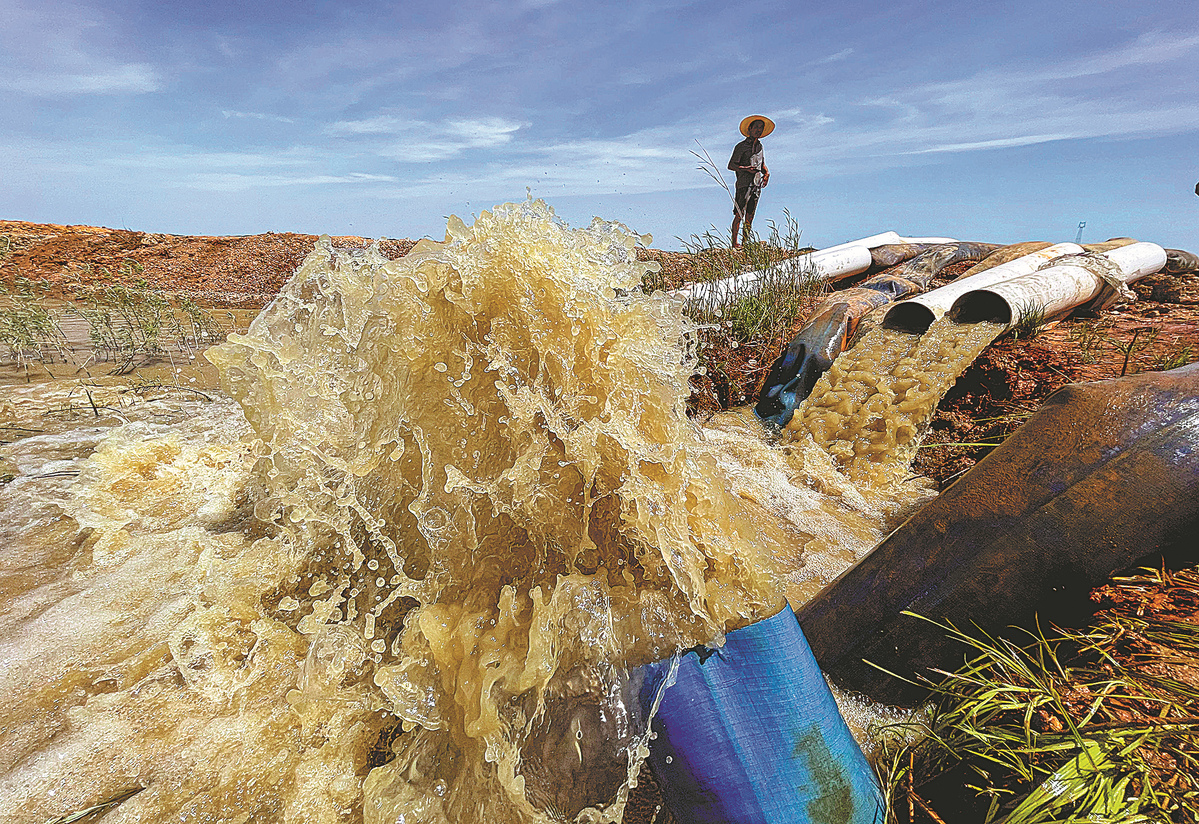Rice-producing areas rev up drought relief


NANCHANG - Despite persistent drought, Cao Liming, a 50-year-old farmer in Jiangxi province, is still looking forward to a bumper harvest this year.
Cao contracts about 12.7 hectares of farmland in Zhouxi township, where the irrigation water source relies mainly on Poyang Lake, China's largest freshwater lake.
However, starting July, a combination of hot weather and a lack of precipitation has swept across southern China. Poyang Lake officially entered this year's dry season on Aug 6, the earliest date since records began in 1951 and 69 days earlier than the average starting date between 2003 and 2021.
Drought conditions have reduced the water area of the lake to 737 square kilometers, around 75 percent less than the same period last year, according to the Jiangxi provincial water resources department.
Jiangxi is one of China's 13 major rice-producing areas, and the area around Poyang Lake is the province's main grain-producing area. To stabilize grain yields, strengthening water diversion and irrigation has become a priority task.
Standing on the embankment of the Xiaoyang farming area, which is adjacent to Poyang Lake, Yu Guopeng, head of Zhouxi township, noted that the water's edge had retreated about 300 meters, leaving plants and riverbeds exposed.
"When Poyang Lake is rich in water, we directly pump water to the irrigation pumping station and then to paddy fields," said Yu. "Now we have to dig canals in the dry riverbeds to divert the lake water first to the canal and then to the station.
"We spent five days digging the canal and then drew the lake water to it with eight pumps running day and night," said Yu. "The solution has guaranteed irrigation water for more than 333 hectares of farmland in the Xiaoyang farming area."
Zhouxi township is just one example of the overall efforts Jiangxi province is making to combat the drought. Weather forecasts show that heat waves will continue across Jiangxi in the coming week, while the water level of Poyang Lake is expected to continue its downward trend.
Many areas in Jiangxi have stored water in advance to cope with potential drought. "Despite suffering severe drought, we have been working to ensure sufficient irrigation water. We still expect a bumper harvest," said Cao.
- Avalanche in Xinjiang leaves one dead
- Research ward at children's hospital in Shanghai treats over 200 patients with rare diseases
- Chongqing symposium examines planning cities around sound, smell, touch
- Former Qingdao legislature chief under investigation
- Former Xinjiang prosecutor Guo Lianshan under investigation
- Shandong and SCO discuss trade, investment and supply chain cooperation





































